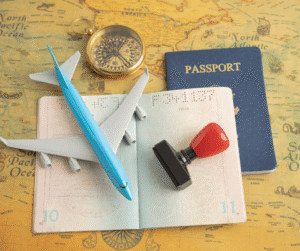A well prepared trip starts long before you board the plane and when you’re heading to a weather and geographically diverse destination like Spain, knowing what to expect can make all the difference. Whether you’re planning a weekend city break in Barcelona, a beach holiday in Mallorca, or a cross-country road trip, organizing your travel essentials is key to a smooth and enjoyable journey.
From understanding local customs and entry requirements to packing the right clothes and having the proper tech gadgets, being well informed helps you avoid last minute stress and lets you focus on enjoying an amazing holiday in the Spanish sunshine. This guide will walk you through everything you need to have in order, covering practical tips and packing strategies tailored to Spain’s unique charm.
1. Check Entry Requirements
Before booking your flights, check the latest entry requirements for your nationality. Most tourists from the UK, EU, US and many other countries can enter Spain visa free for up to 90 days, but you’ll need a valid passport with at least three months remaining.
More information about Entry Requirements to Spain.
2. Passport and documents
Double-check that your passport is valid for your entire trip and complies with Schengen area rules. UK passports must be less than 10 years old and valid for at least three months after your departure date. Take a picture of your passport and any other document like a driving license that you might take on the trip just in case you lose them.
3. Travel insurance
Travel insurance is a must. It covers unexpected medical expenses, trip cancellations, and lost luggage.
4. Luggage policy
Check your airline’s baggage allowance to avoid fees. Budget airlines often have strict hand luggage rules. Consider traveling light with a cabin sized suitcase or backpack.
5. Transfers and transportation
Plan how you’ll get from the airport to your hotel. Major cities in Spain have excellent public transport like underground, train and buses, but double check the timetables and if you need to book in advance. Also have an alternative, like taxi or uber, just in case you are delayed and lose your transfer.
6. Tourist taxes
Some regions like Barcelona or Mallorca charge a tourist tax, usually a few euros per night depending on your type of accomodation. It’s paid directly at your accommodation when you check in.
7. Money and currency exchange
Spain uses the Euro (€). Credit and debit cards are widely accepted. It is always recommended to carry some cash. Use ATMs instead of currency exchange booths for better rates.
8. Mobile data and internet
EU citizens can use their plans without roaming charges. Non-EU travelers (like UK and US) should consider buying a travel SIM or eSIM to avoid high roaming charges. There are still few companies in the UK that offer free roaming while in Spain. Double check your mobile provider.
9. Chargers and Adaptors
Spain uses Type C and F plugs, 230V voltage. Bring an adaptor if your devices have different plugs.
10. Bank Holidays and opening hours
Spain has many national and regional holidays that affect opening hours. Major celebrations include Semana Santa and local fiestas. Check the calendar of the region you’re visiting to avoid surprises.
Spain has different opening times in their attractions, restaurants and shops. Breakfast is around 7 to 9h, lunch between 13 to 15h and dinner around 20 to 22h, some places may not be able to serve you after those times as the kitchen won´t be open. Some smaller shops may close from 14 to 17h during lunch times. Attractions and museums will have specific opening and closing times and may need booking in advance.
11. Tipping culture
Tipping isn’t obligatory but is appreciated. You could round up the bill.
12. Learn a few Spanish words
While most of the touristic places will have staff that speak English, basic Spanish phrases can be very helpful. Learn how to say hello, thank you, and ask simple questions. Locals appreciate the effort.
13. Clothing
Bring comfortable shoes for walking. Smart-casual clothes are suitable for city outings. Light clothing is ideal for hot weather.Evenings can get cool, especially in the north or mountains. A light jacket or sweater is good to have on hand.
14. Sun protection
Spain has over 300 sunny days a year. Pack sunscreen, sunglasses, and a hat to protect yourself from UV rays.
Would you like to make the most of the trip? Do some research about the city and all the attractions that you would like to see. Double check the opening times and plan in advance. In this page Spainexp.com you will find plenty of information about Spain, all the must see places, things to do with kids and much more. Follow these tips, and you’ll be ready to enjoy the food, culture, and sunshine that Spain has to offer. ¡Buen viaje!


